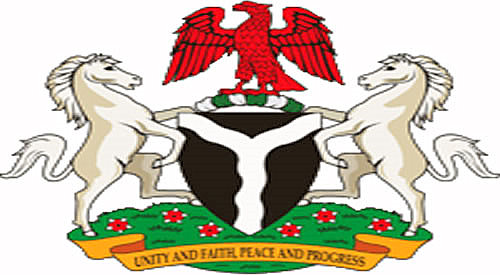News
Heavy Criticism For FG As 24 States Lose Foreign Investments

The Catholic Bishops’ Conference of Nigeria, the Sultan of Sokoto, Alhaji Abubakar Sa’ad lll- led Jamaatul Nasril Islam, some state governments and the Manufacturers’ Association of Nigeria have taken a swipe at the Federal Government over its failure to address the rising insecurity in the country.
The groups stated this on Monday as killings and other forms of insecurity took a toll on investments in the country with foreign investors shunning 24 states in 2021.
Earlier on Monday, the National Bureau of Statistics released data, which indicated that Nigeria generated a total of $698.7m from Foreign Direct Investments in 2021.
According to data from the NBS, the FDI generated in 2021 was the lowest the country recorded in 10 years.
FDI is one of the three major types of investments and a critical source of capital inflow into the country.
Other sources include foreign portfolio investment, foreign loans, and trade credits, among other investments.
NBS defines FDI as an investment whereby the investor has some control or a significant degree of influence on the management of a domestic enterprise.
It notes that the FDI occurs when the investor has enough equity in the enterprise to entitle them to 10 per cent or more of the voting rights in that company.
A breakdown of FDI in Nigeria over the last 10 years shows that in 2012, FDI stood at $2.60bn, it declined to $1.27bn in 2013 but rose to $2.27bn in 2014.
FDI fell again in 2015 to $1.41bn; it fell further to $1.04bn in 2016 and to $981.75m in 2017.
Further analysis of data from the NBS revealed that the FDI rose again to $1.19bn in 2018 but dropped by $256m to $934.34m in 2019.
The latest capital importation report from the bureau stated that the FDI fell by $332m to $698.78m in 2021 from $1.028bn in 2020.
24 states attracted $0 foreign investments
The report also revealed that 24 states in the country failed to attract any foreign investment last year.
These states are Adamawa, Bauchi, Bayelsa, Benue, Borno, Cross River, Ebonyi, Edo, Enugu, Gombe, Imo, Jigawa, Kaduna, Katsina, Kebbi, Kogi, Nasarawa, Niger, Ondo, Plateau, Sokoto, Taraba, Yobe and Zamfara.
Also, 10 out of the 24 states failed to attract foreign investments in the last three years.
The states are Bayelsa, Ebonyi, Gombe, Jigawa, Kebbi, Kogi, Plateau, Taraba, Yobe and Zamfara.
Manufacturers blame insecurity
The Chairman, Infrastructure Committee of MAN, Ibrahim Usman, said that aside from the COVID-19 pandemic that affected a number of companies abroad, there was the issue of insecurity plaguing the country
He said, “Since the COVID-19 pandemic, a lot of the companies that invest abroad have been affected by the pandemic. That is a major cause. Secondly, the insecurity in the nation has continued to go unabated. Nobody wants to invest in a country where there is so much insecurity. Investments thrive only where there is peace and security.”
Issue of foreign exchange, policy somersault make investment in Nigeria risky – MAN
Usman also said that the lack of stable power supply is affecting the productive sector, which is meant to attract foreign investments.
“Also, the availability of electricity is directly related to the advancement in terms of investments. People normally invest in the productive sector. The productive sector cannot operate without adequate reliable, affordable electricity. That’s another major cause. We haven’t made the stride we are supposed to have in terms of electricity supply. The Nigerian electricity supply industry is still at the lowest point,” Usman said.
He added that there was also the issue of foreign exchange and lack of consistent policies, which had made investing in the country highly risky.
Usman added, “Also, there is the issue of foreign exchange. A lot of times we do policy somersault. The government can suddenly come up with a new policy that discourages investors. There must be consistency in policymaking because investors plan 10-20 years ahead, and sudden changing policies can affect their investments.”
Exchange rate affecting business – LCCI
Also, the Deputy President of the Lagos Chamber of Commerce and Industry, Gabriel Idahosa, identified three factors responsible for the steady decline in Nigeria’s FDI.
According to him, the major factor is the unpredictability of Nigeria’s foreign exchange market and the devaluation of the naira.
He explained that foreign investors were sceptical of investing in Nigeria because the value of their returns would have declined in the future due to the naira devaluation.
“Since 1990, the value of the naira has been on the decline and projection in the near future is not showing any significant difference,” he said.
Idahosa, who is a chartered accountant, noted that investors were also reluctant to invest in a country where the cost of doing business is high. He explained that the high cost of electricity in Nigeria, inefficient port and rail systems were undoing Nigeria and its quest for FDI.
“Also, our Company Income Tax is among the highest in the world. Most countries have 15-16 per cent of thereabout, but ours is 32.5 per cent. Most investors are going to places where taxes are low and moving to countries where governments are looking at the number of jobs created rather than high taxes,” Idahosa noted.
He urged the Nigerian government to address these challenges urgently to drive FDI into Nigeria.
-

 Entertainment5 days ago
Entertainment5 days agoNigerian Singer, Ifunanaya, Died After Snake Bite In Abuja
-

 News5 days ago
News5 days ago20-Year-Old College Student Found Dead With Body Parts Missing In Kogi
-

 News3 days ago
News3 days agoOsun Assembly Aspirant Pledges People-centred Representation For Boripe/Boluwaduro constituency
-

 News4 days ago
News4 days agoOver 100 Deaths Averted As Soldiers Evacuate Suspected Bomb From Church Premises In Abia


